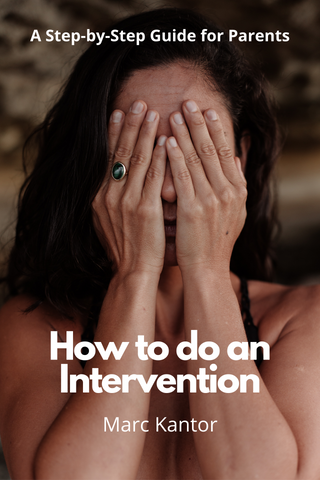Why Alcoholics and Addicts Don't Listen to Reason
If you are living with an active alcoholic or addict, you are probably baffled by their troubling behavior and ignorance of the harm he is causing himself and others. What seems so obvious to you and me does not even seem to faze the alcoholic. You observe in absolute disbelief, while the alcoholic accrues unthinkable consequences, such as getting arrested for drunk driving, being fired from his job, and the threat of divorce and loss of custody. Sometimes even life-threatening health problems are not enough to save the alcoholic from self-destructing. Nearly at the end of your rope, you cry out in utter frustration, “Why can’t he see what his addiction is doing to us?”
While the people around an alcoholic see the drink as the problem, the alcoholic sees the drink as the solution. Alcoholics often discover the transformative effects of alcohol in the midst of a crisis or following years of low self-esteem, depression, and negative self-talk. For the alcoholic, it feels like the weight of the world is on his back, when suddenly he discovers the immense relief a drink gives him. The stress that burdened him only a short time ago is suddenly gone. He is saved, or so he thinks; the alcoholic has found the solution for which he has longed for. In that instant, his feelings of relief and peace are recorded in his midbrain, and thus an obsession and addiction are born.
The book, Alcoholics Anonymous, adequately describes the alcoholic’s experience upon discovering the effects of alcohol:
"Drinking released me from the suffocating fear, the feelings of inadequacy, and the nagging voices at the back of my head that told me I would never measure up. All of those melted away when I drank. The bottle was my friend, my companion, a portable vacation. Whenever life was too intense, alcohol would take the edge off or obliterate the problem altogether for a time."
The midbrain is where life and death decisions are made; it’s also where addiction is rooted. For instance, when a person is suddenly confronted by a group of strangers, the mid-brain instantaneously and without conscious thought, determines if the situation is safe or life-threatening. This level of security guarantees basic human survival. Things, like getting food, finding shelter, and attracting a mate, are all mid-brain activities. Once addiction has hijacked the mid-brain, the decision to drink is no longer a choice; it is a matter of survival.
The sober observer, however, processes the alcoholic’s behavior through the frontal cortex where rational decisions are made. This part of the brain is used for weighing apples and oranges, so to speak. It’s the part of the brain that says, I had pizza last night, maybe tonight, I should have something healthier for dinner. The frontal cortex is free to make these nonessential decisions, only because the mid-brain has already determined the current situation is non-life threatening.
Does this mean there is no hope for the alcoholic to get sober? No, it means, once confronted at an intervention, or otherwise, the alcoholic will fiercely defend his drinking, because he cannot imagine a live without alcohol, and falsely believes sobriety means returning to the burden and stress of everyday life; the exact reason he started to drinking, to escape.
The people participating in the intervention may be met with anger and strong defiance; it is better to accept this then attempt to maneuver around it. In addition to being angry, the alcoholic will further defend his drinking with logistical objections: I can’t be away from work for so long, who will pay the bills, what about the kids, there’s nobody to take care of the cat, and, of course, there will be more. These are legitimate concerns, but none of them should keep the alcoholic from getting help. A professional interventionist will prepare you for this backlash and keep the discussion moving in the right direction. It’s unlikely your alcoholic will come up with an objection the interventionist hasn’t heard before or to which he cannot respond. Every year thousands of people go to treatment and take their first steps in recovery.
In 2004, I was on the receiving end of intervention; I was overcome with fear and fought to protect my addiction. Up until the time I got sober, I had rarely seen a day without using or drinking. The idea of living without alcohol and drugs was almost too much for me to contemplate. I have not drunk or used since.
Unlock Our Free Sobriety Agreement and Relapse Prevention Plan
If someone you know is struggling with addiction, we can help. Get guidance today.
South Florida Intervention offers exclusive solutions for families struggling with the devastating effects of addiction. Marc Kantor is a professional interventionist and the founder of South Florida Intervention, based in Boca Raton, FL. If someone you know is struggling with addiction, we can help. For additional information please e-mail us at marc@southfloridaintervention.com.

Download Free Guide: How To Do An Intervention
GetHelpForAddiction.com
